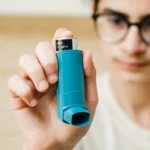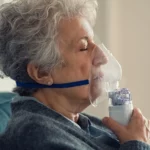Low-Cost Asthma Treatment Tips – Affordable Ways to Manage Asthma Effectively
Dealing with asthma can be tough, but managing it doesn’t have to break the bank. Let’s dive into some low-cost asthma treatment tips that can help you breathe easier without draining your wallet.
Asthma can be challenging to live with, especially if you’re dealing with frequent flare-ups. But here’s the thing: asthma management doesn’t always require expensive medications or fancy treatments. There are plenty of affordable ways to keep your asthma under control and live a healthy life. In this article, we’ll go over a few practical tips and tricks that can help you manage your asthma without costing a fortune.

Why Managing Asthma Effectively is Important
Living with asthma can feel like a balancing act. You want to breathe easy, but triggers are everywhere—whether it’s dust, pollen, or even exercise. Plus, the cost of asthma medications can add up over time. However, having asthma doesn’t mean you need to spend a fortune. With the right strategies, you can find low-cost asthma treatments that work for you. Let’s talk about some of the best ways to manage asthma on a budget:
1. Keep Your Home Clean & Dust-Free
One of the most common asthma triggers is dust. Keeping your home clean and dust-free is a simple yet effective way to manage asthma symptoms. Here are a few budget-friendly tips:
- Use hypoallergenic pillowcases and sheets to prevent dust buildup.
- Clean floors with a damp mop instead of sweeping, which can stir up dust.
- Vacuum regularly with a vacuum cleaner that has a HEPA filter, or use a microfiber cloth to wipe down surfaces.
These small changes can make a big difference in reducing asthma triggers at home.

2. Focus on Breathing Exercises
Breathing exercises are a fantastic way to manage asthma symptoms without any cost at all. Practicing deep breathing exercises regularly can help increase lung capacity and reduce the frequency of flare-ups. Some popular exercises include:
- Diaphragmatic breathing: This helps strengthen your diaphragm and can make it easier to breathe during an asthma attack.
- Pursed-lip breathing: A technique that helps slow your breathing and keeps your airways open longer, making it easier to breathe.
- Buteyko breathing method: This focuses on shallow breathing and can be helpful in controlling asthma symptoms.
These exercises are free and can easily be incorporated into your daily routine.
3. Know Your Asthma Triggers
Knowing what causes your asthma to flare up is key to managing it effectively. Common asthma triggers include allergens, cold air, smoke, and exercise. Once you know your triggers, you can take steps to avoid them. For example:
- Allergens: Use a simple air purifier or open windows to keep fresh air circulating.
- Cold weather: Wear a scarf over your nose and mouth to keep your airways warm.
- Exercise: Try to exercise in warm, dry environments or use a rescue inhaler before physical activity.
Keeping track of what triggers your asthma can help you avoid unnecessary flare-ups and reduce the need for expensive medications.
4. Use Over-the-Counter (OTC) Medications Wisely
While prescription medications can be expensive, there are some over-the-counter options that can help with asthma symptoms. For example, antihistamines and decongestants can help if your asthma is triggered by allergies. Make sure to consult your doctor before using any over-the-counter treatments, especially if you’re already on other medications.
5. Try Natural Remedies
If you’re looking for natural ways to manage asthma, there are several home remedies that may help. While these won’t replace your prescribed asthma medication, they can provide some relief for mild symptoms:
- Honey and ginger: Both are known for their anti-inflammatory properties and can help soothe the throat.
- Steam inhalation: Breathing in steam from a hot shower or a bowl of hot water can help clear your airways and make it easier to breathe.
- Peppermint tea: The menthol in peppermint can help open up the airways and improve airflow.
These remedies are cheap, easy to prepare, and can be a great addition to your asthma management routine.

6. Regular Exercise (When Done Safely)
Exercise might seem like something to avoid when you have asthma, but it’s actually essential for strengthening your lungs and improving overall health. The key is to exercise safely. Here’s how you can get the benefits without triggering an asthma flare-up:
- Start slow and build up your stamina gradually.
- Warm-up properly before exercise to prepare your body and lungs.
- Choose low-impact exercises like walking, cycling, or swimming. These activities tend to be gentler on the lungs.
If you’re unsure about which exercise is best for you, ask your doctor for guidance.

7. Seek Low-Cost Healthcare Options
If you’re struggling with the cost of asthma treatment, consider looking into low-cost healthcare options in your area. Many community health clinics offer affordable asthma care and can provide you with medications at a reduced cost. Some pharmacies also offer generic versions of popular asthma medications, which can save you a lot of money.
Conclusion
Managing asthma on a budget is totally possible. By following these tips—keeping your home clean, practicing breathing exercises, knowing your triggers, and using low-cost medications or natural remedies—you can effectively control your asthma without draining your savings. Always remember, though, that working with your doctor to create an asthma management plan is crucial to ensuring you get the best care for your specific needs.
Appendices
References
Here are some trusted resources on asthma care and management:
- American Lung Association. (2024). Asthma Management: Low-Cost Solutions. Read Article
- National Heart, Lung, and Blood Institute. (2023). Managing Asthma with Lifestyle Changes. Read Article
- Mayo Clinic. (2022). Asthma: Effective Low-Cost Treatments. Read Article
FAQs
Here are some frequently asked questions about low-cost asthma treatment:
- Can I manage asthma without using medication? While it’s important to use prescribed medication for asthma, there are plenty of lifestyle changes, breathing exercises, and natural remedies that can help reduce symptoms.
- Is it possible to reduce asthma flare-ups without medication? Yes! By avoiding triggers, exercising safely, and practicing deep breathing, you can minimize flare-ups without relying solely on medications.
- Are over-the-counter medications effective for asthma? OTC medications can help with mild symptoms, but they should be used in conjunction with your prescribed asthma treatment. Always consult your doctor first.
- What can I do if I can’t afford my asthma medication? Check for generic versions of your medication, look for assistance programs at community clinics, or ask your doctor about lower-cost alternatives.
- How can I know my asthma triggers? Keep a journal of when your symptoms occur, and note any environmental factors, foods, or activities that seem to make things worse.
Disclaimer
The information in this article is for educational purposes only and does not replace professional medical advice. Always consult with your healthcare provider before making any changes to your asthma treatment plan.














